Presented at the International Symposium on Children's Welfare and their Rights held by the Japanese Society of Child Science and
Child Research Net
Main Hall, Okayama Head Office of Benesse Corporation
October 14, 2013
The Welfare of children: Links and missing connections among science, conceptualization of rights and policy research
I am now moving into the second part of my talk. This part is about the UN Rights of the Child. I have chosen to focus on the UN Convention on the Rights of the Child because it represents an international effort to define what are the rights of all children.
The UN Convention on the Rights of the Child
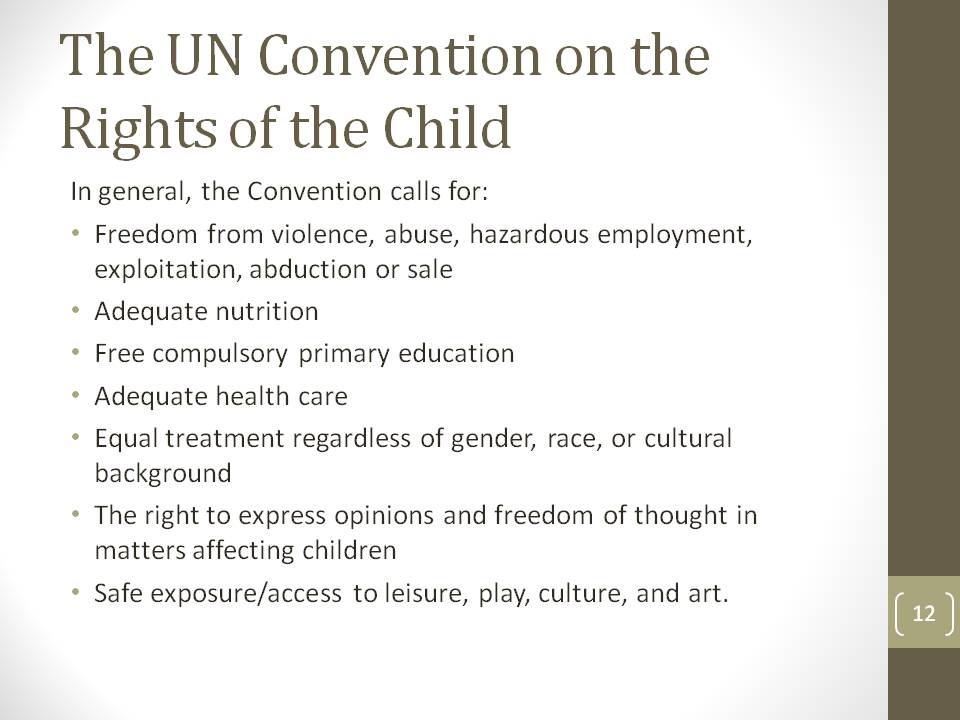 Enlarge
EnlargeRights of the child - Family
I have chosen to highlight some of the UN Rights of the Child.
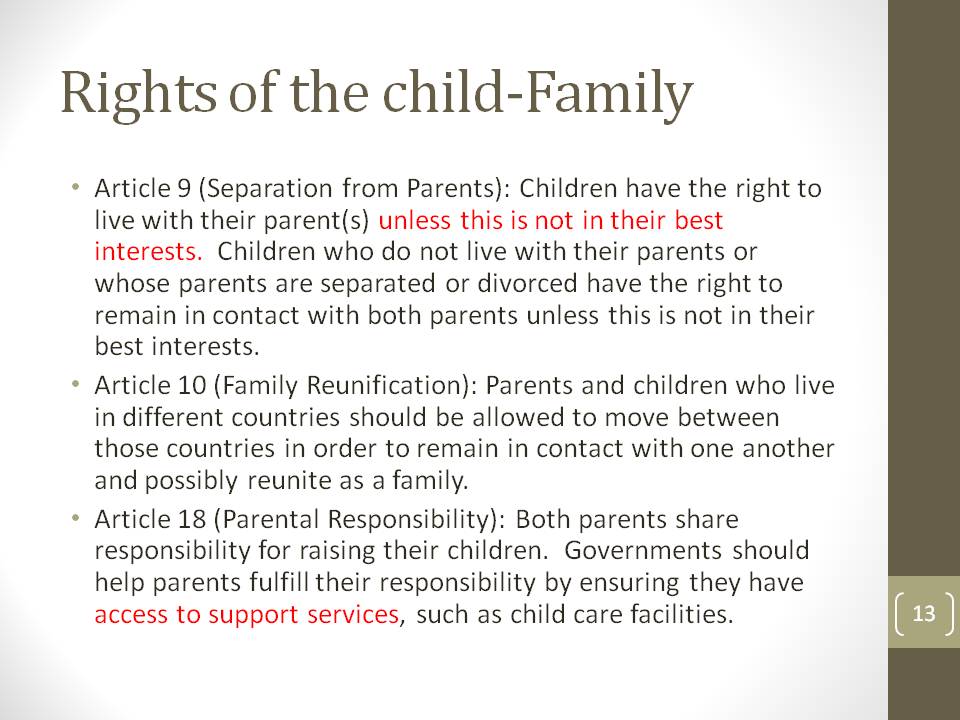 Enlarge
EnlargeRights of the child - Health
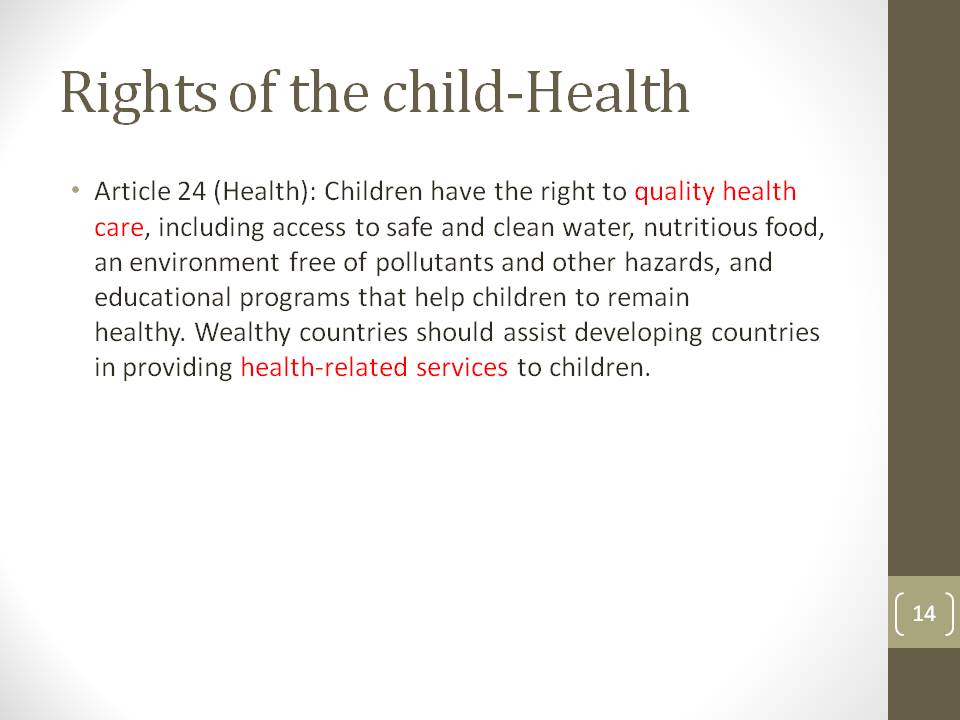 Enlarge
EnlargeRights of the child - Standard of living
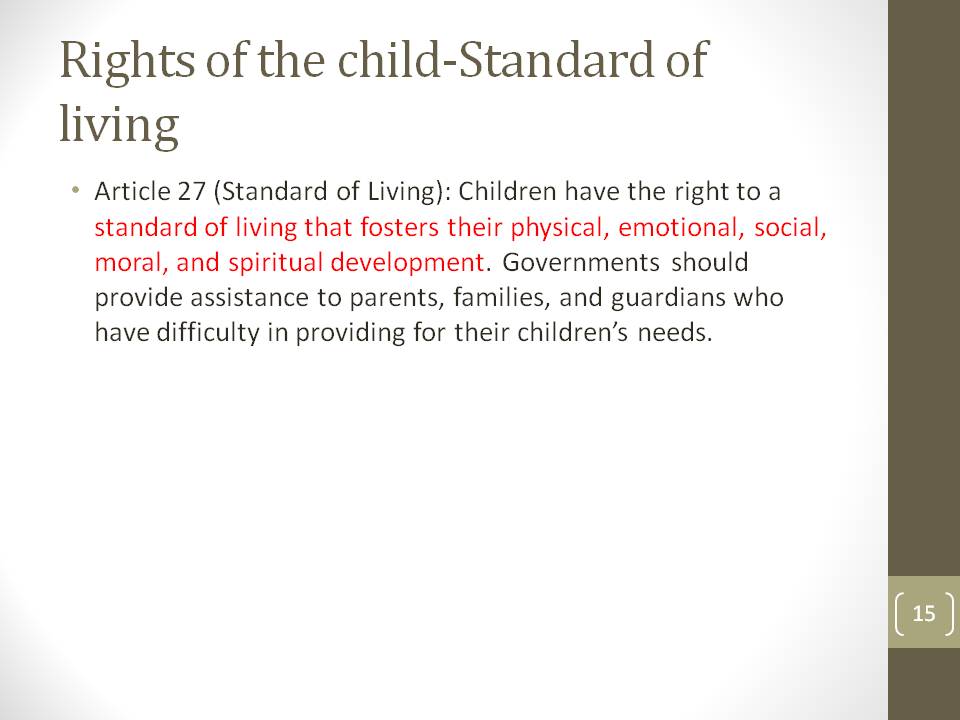 Enlarge
EnlargeRights of the child - Education
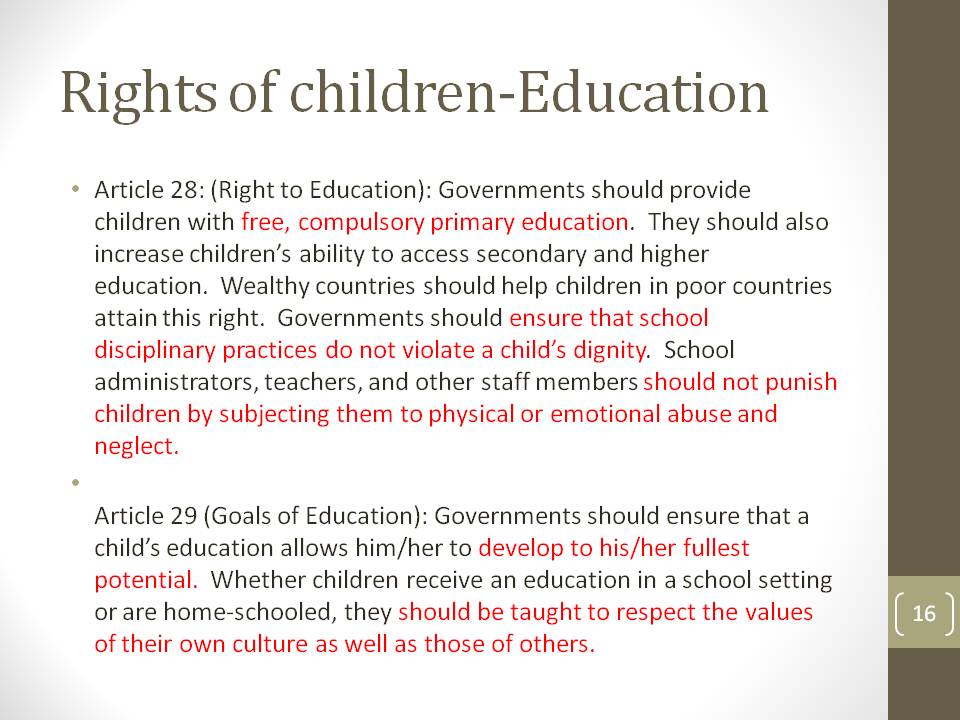 Enlarge
EnlargeThe basis of rights: Moral values & scientific evidence
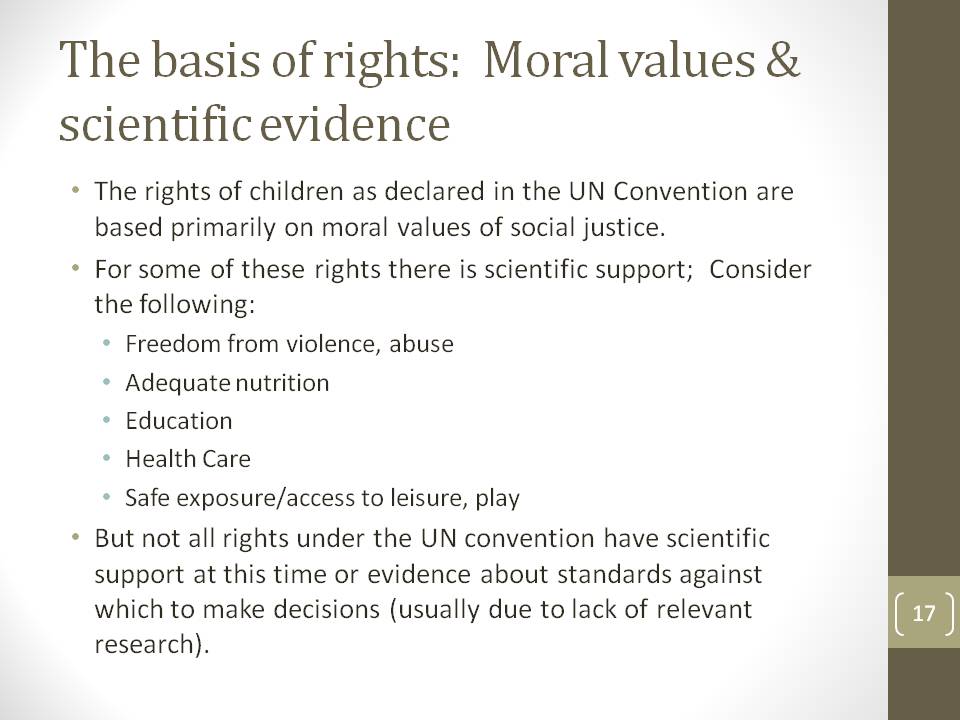 Enlarge
EnlargeIn the following few slides (Slides 18-22) I bring citations that show how science supports some of the rights of children. I will go through these very quickly and you can get back to the details later on.
Freedom from violence
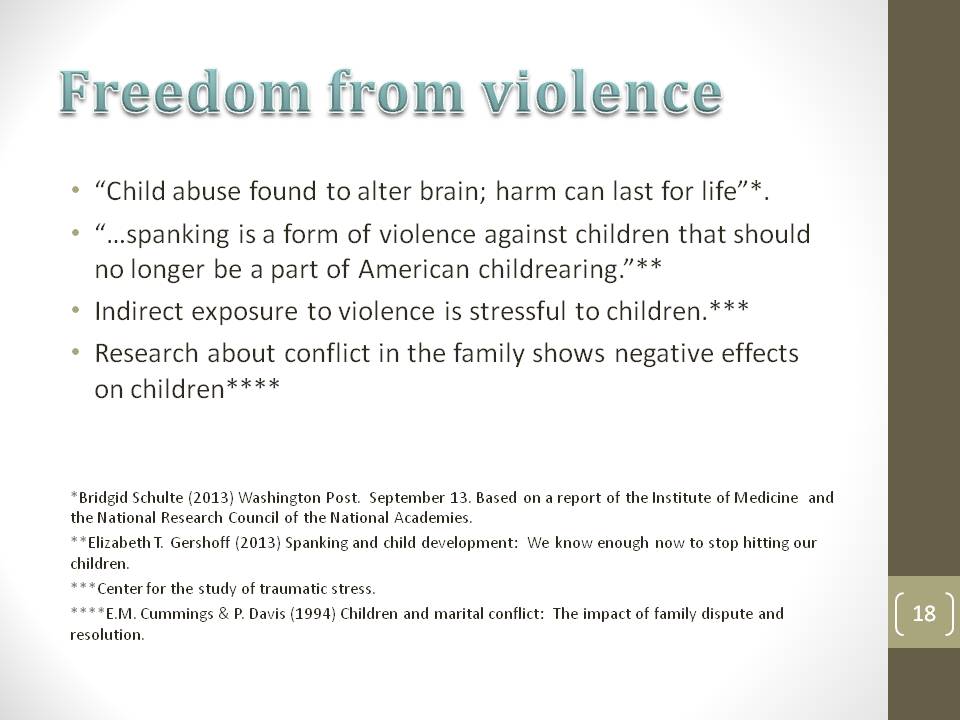 Enlarge
EnlargeIn this slide I have citations about the effects of violence on children.
Adequate nutrition
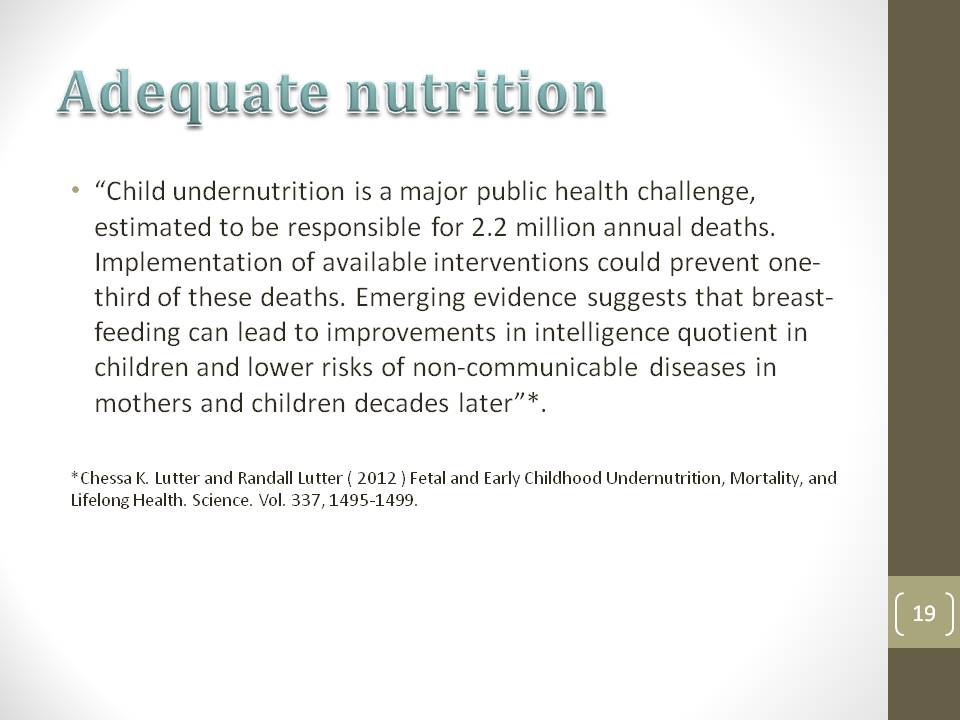 Enlarge
EnlargeEducation
I will mention one of many studies that indicate the power of education:
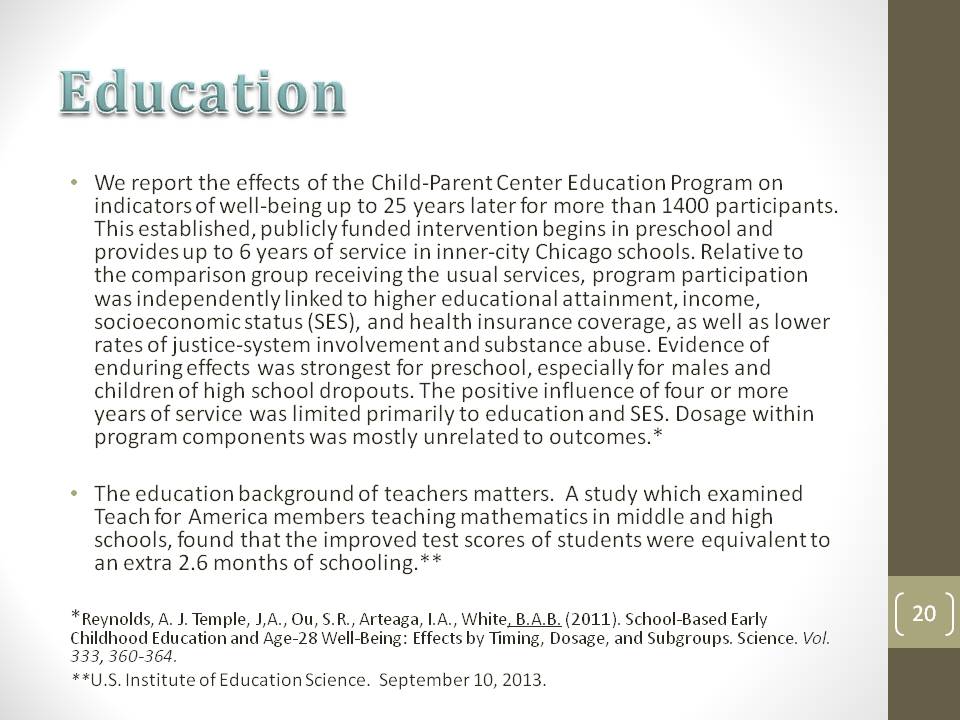 Enlarge
EnlargeHealth Care
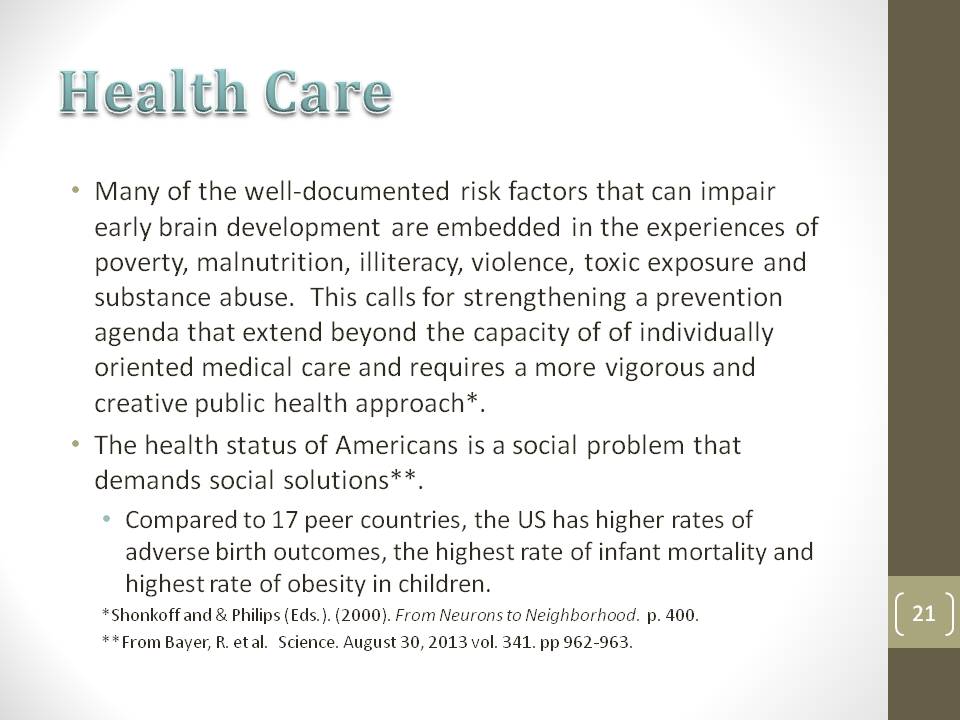 Enlarge
EnlargeI will mention only the third bullet. Until September of this year, the US did not require that all its citizens have access to health care. The consequence is that "Compared to 17 peer countries, the US has higher rates of adverse birth outcomes, the highest rate of infant mortality and highest rate of obesity in children."
Access to leisure and play
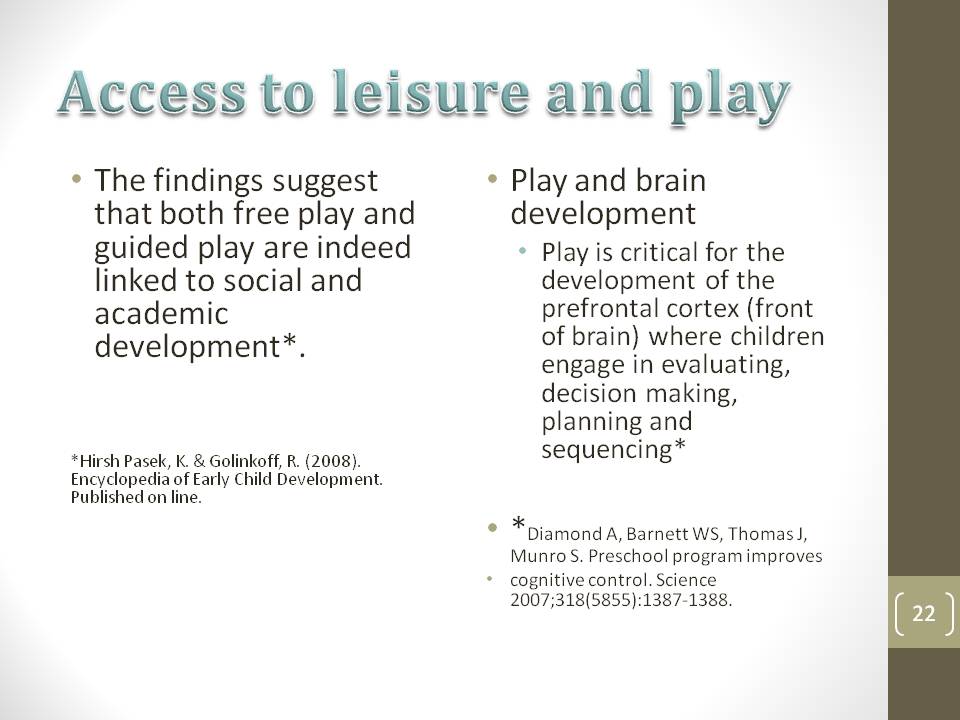 Enlarge
EnlargeScientists have been long fascinated with the importance of play. While the definition of play is somewhat elusive, there are findings showing that play is important for children's development.
| | 1 | 2 | 3 | |



 Sarah L. Friedman, Ph.D.
Sarah L. Friedman, Ph.D.










